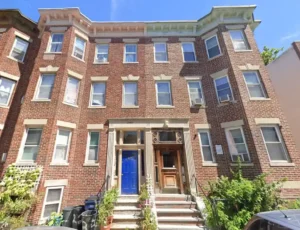
Few methodologically sound studies have emerged in the area of traditional recovery homes. In one of the few recovery home longitudinal studies, Polcin (2006) found that 51% of recovery home residents were abstinent from drugs and alcohol at a six-month follow-up. Regrettably, there are few studies reporting differential outcome data contrasting recovery home and therapeutic community residential treatments for substance abuse. In part, this is due to the fact that it is hard to provide systemic long-term outcome data on these hard to reach, highly recidivist populations. One of the largest examples of a community-based, mutual-help residential community for high risk substance abuse individuals is Oxford House. In the U.S., over 9,800 people live in these self-run dwellings where they obtain jobs, pay utility bills, and learn to be responsible citizens.
- Moreover, American Indians reported greater disharmony within their recovery residences than Caucasians, but there were no significant ethnic differences in length of stay in Oxford House.
- There are six house officers in each Oxford House, elected by the members to support the operations of the house.
- It also acts as the coordinating body to help individual houses to organize mutually supportive chapters.
- First of all, no Oxford House may permit individuals to remain as members if those individuals are drinking or using drugs.
Oxford Houses of Virginia
And maybe they’ve got a reputation that people just don’t want to get over. In its simplest form, an Oxford House is a shared residence where people in recovery can live together and support each other in a drug and alcohol-free environment. This self-governance enhances recovery outcomes by providing a stable living situation and promoting healthy resident relationships. Focusing on peer support and personal responsibility allows individuals to concentrate on their recovery while developing essential life skills in a supportive atmosphere. Staying for six months or more correlated with reduced substance use (15.6% usage prevalence) and better outcomes in employment and self-efficacy.

Impacts Beyond Oxford House: Community Perceptions
As a general rule formal AA or NA meetings are not held in an Oxford House member who has maintained comfortable sobriety in an Oxford House makes it a practice to attend a lot of AA and/or NA meetings on a regular basis. Oxford House, Inc. acts as the coordinating body for providing charters for the opening of new Oxford Houses. It also acts as the coordinating body to help individual houses to organize mutually supportive chapters. Through chapters individual houses are able to share their experience, strength and hope with each other to assure compliance with the Oxford House concept and its respected standardized system of operations.
- Each individual recovers from alcoholism or drug addiction at a different pace.
- Given the expanding federal deficit and obligations to fund social security, it is even more important for psychologists to consider inexpensive ways to remediate inequities within our society.
- Instead, these individuals cycle repetitively through service delivery systems (Richman & Neuman, 1984; Vaillant, 2003).
- Applicants must complete this membership application and be interviewed by the house they are looking to live at.
- In 2007, the Oxford House organization received about $1.6 million in grants from state and local governments to pay outreach workers to develop and maintain networks of individual Oxford Houses in nine States and the District of Columbia.
New Jersey’s Drug Laws: An Overview of Legal Medications and Substances
Each house adheres to the absolute requirement that any member who returns to using alcohol or drugs must be immediately expelled. Each member pays EES (Equal Expense Share) which includes the total amount of rent due for the month, utilities and basic staples for the house. Given the expanding federal deficit and obligations to fund social security, it is even more important for psychologists to consider inexpensive Oxford House ways to remediate inequities within our society. The Oxford House model suggests that there are alternative social approaches that can transcend the polarities that threaten our nation (Jason, 1997). We believe that there is much potential in the Oxford House model for showing how intractable problems may be dealt with by actively involving the community.
Knowing the Oxford House Sober Living Rules

Also, therapeutic community residents may stay only for a limited time before many return to oxford sober living former high-risk environments or stressful family situations (Goldsmith, 1992). As of 2008, there were 321 women’s Oxford Houses with 2,337 women, and 982 men’s Oxford Houses with 7,487 men, for a total of 1,303 houses serving 9,824 people (Oxford House, 2008). Of the residents, 18% were veterans, and 91% were working with average monthly earnings of $1,480.

Start Your Addiction Recovery Journey Today

An underlying principle of Oxford House is that each individual member has the ability to be responsible for himself. Living within an Oxford House provides both the opportunity and motivation for all residents to regularly attend AA and/or NA meetings. The example of Oxford House members going to AA or NA meetings on their own is contagious.
Q. Is there any financial aid available to start a new Oxford House?
Alcoholism and drug addiction are international problems and Oxford Houses can provide recovering individuals the opportunity to become comfortable enough in sobriety to avoid relapse. What sets Oxford Houses apart from traditional sober living homes is their democratic model, where residents actively participate in decision-making processes, fostering a sense of accountability and community. Unlike many traditional sober living homes, Oxford Houses do not have a staff presence or formal treatment programs; instead, they rely on residents to manage the house and support one another.
